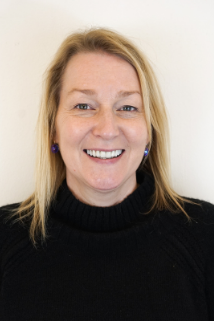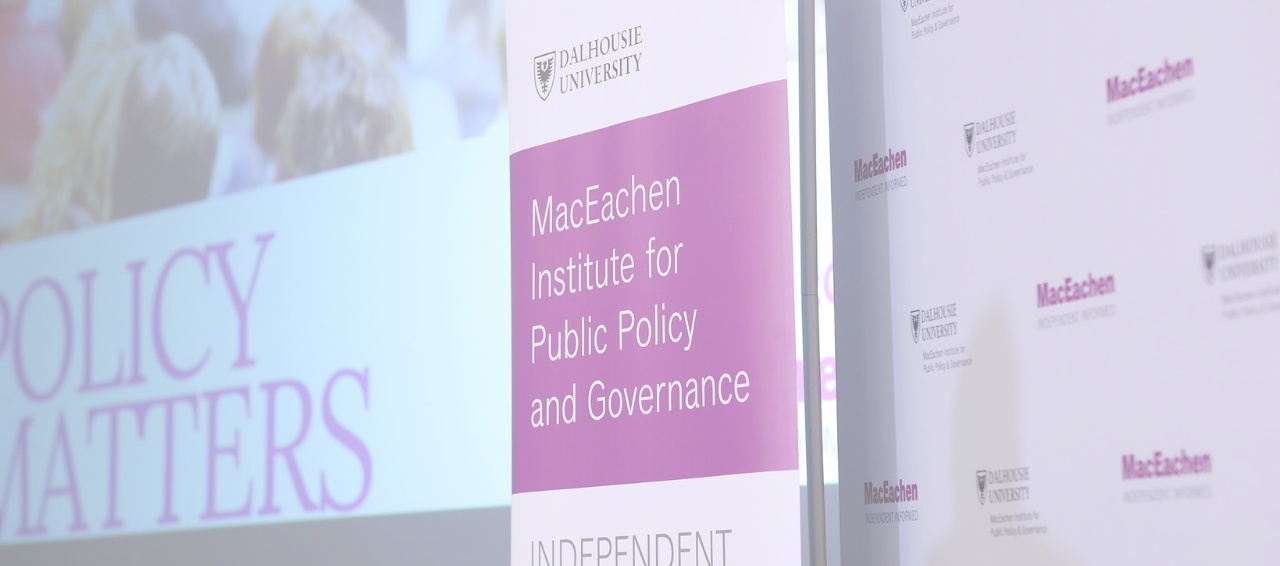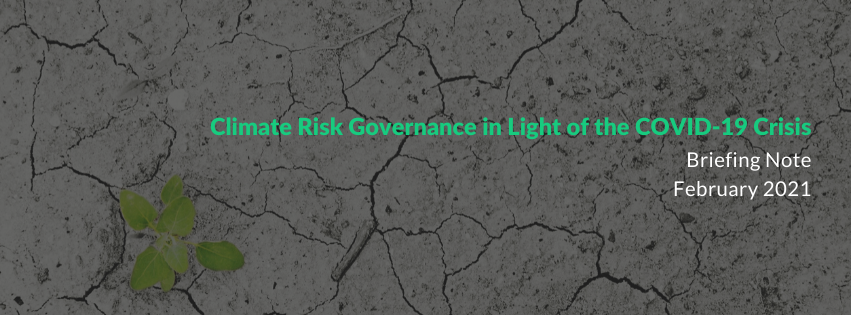Coastal Risk Governance: Lessons From COVID‑19
Panel Discussion
This event took place on October 20, 2020
Presented by the MacEachen Institute and the Marine Environmental Observation, Prediction and Response Network (MEOPAR).
If both COVID-19 and climate change are to be treated as emergencies, the response by our leadership should have many of the same characteristics, including a clear, adaptable, and coordinated approach. This panel will explore viable policy options for the climate during and following the challenges brought about by COVID-19.
About the Speakers
Dr. Ron Pelot
 Ronald Pelot is a Professor of Industrial Engineering at Dalhousie University, where he also lectures in the Marine Affairs program and the School of Public Administration. Over the past two decades, he and his team have developed new software tools and analysis methods applied to maritime traffic safety, environmental impacts of shipping, and coastal zone risk management.
Ronald Pelot is a Professor of Industrial Engineering at Dalhousie University, where he also lectures in the Marine Affairs program and the School of Public Administration. Over the past two decades, he and his team have developed new software tools and analysis methods applied to maritime traffic safety, environmental impacts of shipping, and coastal zone risk management.
Dr. Pelot has published over 50 journal articles and produced more than 100 technical reports.
He is also the Associate Scientific Director of the MEOPAR NCE (Marine Environmental Observation, Prediction and Response Network of Centres of Excellence).
Nancy Anningson
 Nancy Anningson is the Coastal Adaptation Senior Coordinator at the Ecology Action Centre. She has a Biology degree from Acadia University and has been working in the non-profit sector in Nova Scotia since 2000, conducting research, facilitating stakeholder consultations, analyzing and developing policy and managing initiatives.
Nancy Anningson is the Coastal Adaptation Senior Coordinator at the Ecology Action Centre. She has a Biology degree from Acadia University and has been working in the non-profit sector in Nova Scotia since 2000, conducting research, facilitating stakeholder consultations, analyzing and developing policy and managing initiatives.
Nancy works with coastal community members, organizations and provincial and municipal government to strengthen coastal protection policy, support coastal climate change adaptation efforts and bring issues to light.
Nancy’s Coastal Team created the www.sealevelrise.ca website and work closely with NS Environment on the Coastal Protection Act for Nova Scotia.
Dr. Paul Foley
 Paul Foley is an Associate Professor in the Environmental Policy Institute at Memorial University of Newfoundland’s Grenfell Campus. He received a PhD in Political Science from York University in Toronto, specializing in political economy and global governance.
Paul Foley is an Associate Professor in the Environmental Policy Institute at Memorial University of Newfoundland’s Grenfell Campus. He received a PhD in Political Science from York University in Toronto, specializing in political economy and global governance.
His work draws on political economy and political ecology to study relationships between environmental governance and social development, with a current empirical emphasis on oceans, fisheries, seafood and coastal communities.
He is co-principal investigator on the Ocean Frontier Institute project Future Ocean and Coastal Infrastructures (FOCI): Designing Safe, Sustainable and Inclusive Coastal Communities and Industries for Atlantic Canada.
Dr. Melina Kourantidou
 Dr. Melina Kourantidou is an environmental and resource economist and a 2019 – 2020 Junior Fellow of the MacEachen Institute for Public Policy and Governance. She holds a PhD from the University of Southern Denmark and joined as a postdoctoral fellow of the Marine Affairs Program at Dalhousie University in 2019 and in 2020 the Marine Policy Center at Woods Hole Oceanographic Institution.
Dr. Melina Kourantidou is an environmental and resource economist and a 2019 – 2020 Junior Fellow of the MacEachen Institute for Public Policy and Governance. She holds a PhD from the University of Southern Denmark and joined as a postdoctoral fellow of the Marine Affairs Program at Dalhousie University in 2019 and in 2020 the Marine Policy Center at Woods Hole Oceanographic Institution.
Her work is grounded in natural resource management and governance issues. Her research integrates natural and social sciences research and focuses specifically on analyzing effects of ecological and socioeconomic changes in coastal communities. Her long-term research interests include interdisciplinary approaches that apply economic theory and methods to advance marine resource management and help ensure sustainable development and healthy resilient communities and ecosystems. Her research these days focuses on the effects of change taking place in Arctic ecosystems and particularly in the Arctic marine environment.
Dr. Jason Thistlethwaite
 Jason Thistlethwaite is an Associate Professor in the School of Environment, Enterprise and Development (SEED) at the University of Waterloo, and Associate Director for Partners for Action (P4A). His research evaluates climate change risk management strategies designed to reduce economic vulnerability. His current research program involves building 3D visualizations of flood risk, mapping and measuring social-vulnerability, and developing decision-making social science to inform governments about effective risk management.
Jason Thistlethwaite is an Associate Professor in the School of Environment, Enterprise and Development (SEED) at the University of Waterloo, and Associate Director for Partners for Action (P4A). His research evaluates climate change risk management strategies designed to reduce economic vulnerability. His current research program involves building 3D visualizations of flood risk, mapping and measuring social-vulnerability, and developing decision-making social science to inform governments about effective risk management.
Jason has published widely on issues including private environmental governance, the role of insurance in climate change adaptation, and policy tools for urban flood risk management.

